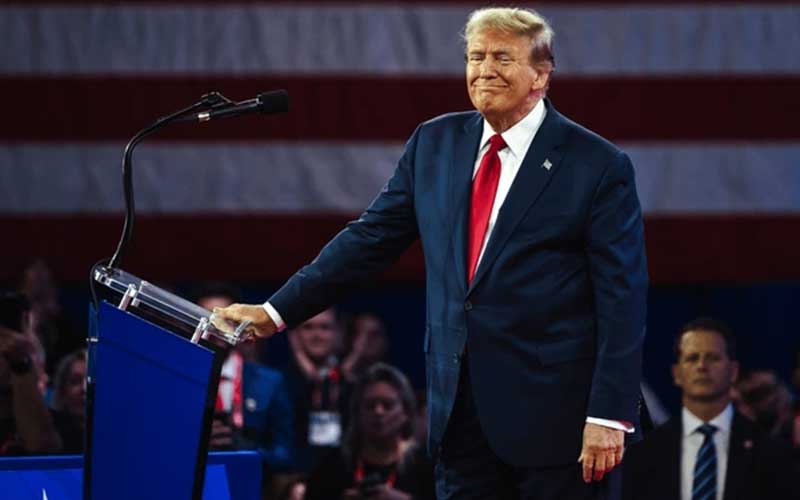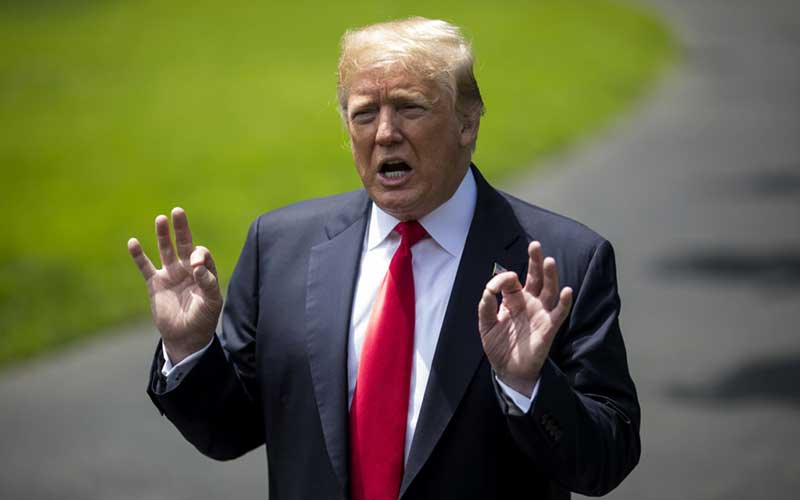
Trump Signs Controversial Order to End Birthright Citizenship
January 21, 2025
By atoztechworld
President Donald J. Trump has signed an executive order that has caused quite a stir; the order is meant to eliminate birthright citizenship in the United States. You know the policy that allows children born in the United States no matter the legal status of the parents to acquire citizenship automatically? Well it is in the 14th Amendment to the U.S. Constitution.
Trump’s order aims at changing the definition of who is a citizen by birth to only children with at least one parent who is a citizen, a legal resident or a member of the armed forces. It has been one of the most ambitious attempts to change the immigration policy during his second term.
A Bold Challenge to the Constitution
The 14th Amendment, adopted in 1868, states:
‘‘Any citizen of the United States of any age, whether born within the United States or not, who is not a citizen of any foreign kingdom or state, and is a subject of the United States, shall be a citizen of the United States and of the state in which the person resides.’’

Trump has long said the clause has been misinterpreted, insisting it encourages illegal immigration and the so-called “birth tourism” – when foreign nationals come to the United States for the purpose of giving birth to a child who will automatically become an American citizen.
During the announcement, Trump said, “This is about the preservation of one of the greatest political institutions of all: the right of American citizenship.” “This is the only developed country in the world where such a policy is so broad and it is being abused. This stops now.”
Legal and Political Ramifications
The executive order is likely to be challenged in court soon as many experts question its legality. Most legal analysts state that the move to end birthright citizenship would require a constitutional amendment not an executive order.
“An executive order cannot override the Constitution,” said Sarah Rodriguez, a Georgetown University professor of constitutional law. “This will undoubtedly go to the Supreme Court where it will be examined on the basis of the text and the history of the Fourteenth Amendment.”
Republican legislators and immigration hawks have generally backed the action, seeing this as a measure to reduce the influx of illegals and to link the citizenship with legal residency. However, Democrats as well as immigrant rights activists have criticized the policy as mean to directly violate fairness as well as diversity.
Impact on Immigrant Communities
Termination of birthright citizenship remains a concept that if actualized might hold profound possibilities for several millions of people and families in United States of America. Pew Research Center has estimated that over 5 million children born in the United States have at least one parent who is an illegal immigrant.
Some critics say the policy will lead to a new generation of stateless children who will not have citizenship in any country, especially when their parents cannot pass on citizenship of their countries of origin.
“This is a vicious and unkind measure which will only serve to isolate immigrants even more,” said Maria Gutierrez, an advocate for the National Immigration Forum. “It does nothing to address the causes of migration and migration flows and only punishes children.”
Historical Context and Global Comparisons
Currently, only 35 countries in the world permit birthright citizenship, and the United States is one of them. All other countries limit the acquisition of citizenship to those who are born to citizens or permanent residents. Trump has often referred to this as a sign that the U.S. policy is still in place and can easily be exploited.

Attempts to repeal the provisions of birthright citizenship are not new. In his inaugural term, Trump suggested that the problem might be solved with an executive order but never did it. His new interest in the policy is in line with his other policy agendas of decreasing immigration to the United States and tightening the requirements for attaining United States citizenship.
Looking Ahead
The legal challenges on Trump’s executive order are expected in the next few months and the case may reach the Supreme Court. Though the decision is still pending, the action has revived national discussions in immigration, the constitution, and what it means to be an American citizen.
This policy is one of the measures in the immigration policy of the Trump administration, along with other unpopular steps to strengthen the control of the borders and change the meaning of the immigration legislation.
Follow for more: Facebook

